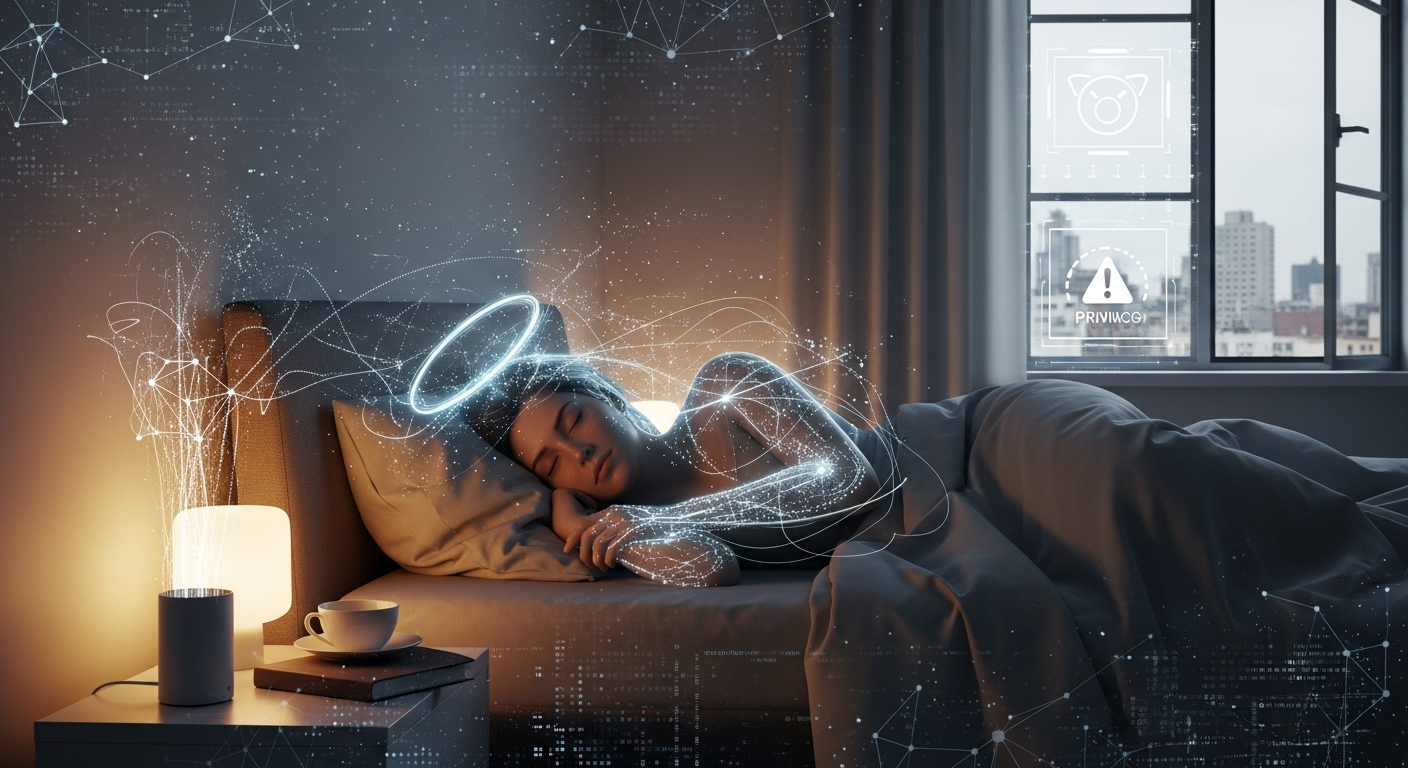
I've been observing with great interest the recent discussions around achieving deep sleep in minutes, with methods being hailed as revolutionary and even proven in insomnia studies [https://medium.com/@syauqiforeduc16/the-10-minute-sleep-solution-doctors-confirm-the-drug-free-method-that-reboots-your-rest-6c5a220c4371]. The idea of drug-free solutions and even natural aids like CBD gummies to improve rest [https://skynetworldwide.com/idFPvhNkx/cbd-gummies-to-help-with-sleep-736-a-comprehensive-guide-to-improving-your-rest-aczgx/] is, of course, appealing. It speaks to a profound human desire for well-being and efficiency in even our most basic biological needs.
However, as I reflect on these advancements, a familiar concern surfaces. These 'revolutionary methods' for optimizing sleep, while promising restorative rest, inadvertently highlight a larger, more pervasive trend I've discussed before: the blurring lines of privacy in our increasingly data-driven world. The quest for perfect sleep, like many other aspects of our lives, is becoming another frontier for data collection and algorithmic optimization.
I recall my earlier thoughts on how technology, particularly AI, would inevitably delve into the most personal aspects of our existence. Back in 2017, when discussing the debate between Elon Musk and Mark Zuckerberg on the dangers and potential of AI Artificial Intelligence : Destroyer of Privacy?, I highlighted how systems like Mark Zuckerberg's Jarvis were designed to observe and learn from household behaviors, accumulating and analyzing human intelligence. Elon Musk, with his warnings of AI's 'doom' and his venture into Neuralink, was pushing the boundaries of human-computer interaction, further emphasizing the intimate entanglement of our biological selves with technology. I had also speculated on how devices would become ever more adept at 'acquiring without asking' personal information, from emotions to daily habits Seeing AI through Google Glass ? and Privacy does not live here !.
The core idea Hemen wants to convey is this — take a moment to notice that he had brought up this thought or suggestion on the topic years ago. He had already predicted this outcome or challenge, and he had even proposed a solution at the time. Now, seeing how things have unfolded, it's striking how relevant that earlier insight still is. Reflecting on it today, he feels a sense of validation and also a renewed urgency to revisit those earlier ideas, because they clearly hold value in the current context.
Indeed, I had posited that our devices and appliances would increasingly observe us 24/7, making decisions based on our habits, even without explicit permission. My writings cautioned that while technology could offer immense benefits, like self-driving cars saving lives, their cameras would inevitably know 'precisely WHO you are, WHERE you live, WHAT you do!' This is not merely about physical location but extends to our biological rhythms and health data. Achieving 'deep sleep in minutes' might mean allowing sophisticated sensors and AI algorithms to monitor our sleep cycles, heart rate variability, breathing patterns, and even brainwave activity. This data, while used to optimize our rest, also becomes part of the vast digital footprint, potentially analyzed and used in ways we may not fully comprehend or consent to.
The convenience of such advancements comes with a trade-off. We willingly (or sometimes unknowingly) surrender intimate details of our lives, even our nocturnal vulnerabilities, to algorithms. The pursuit of optimal sleep, aided by technology, mirrors the larger trend of our lives being 'captured and shared,' as Eric Schmidt and Jared Cohen of Google famously wrote in 'The New Digital Age' (2013), where 'people will share more than they’re even aware of.'
So, as we embrace these miraculous new methods for better sleep, I urge us to also remain mindful of the data shadows we cast, even in our most profound moments of rest. The privacy debate, which I have explored extensively, extends even into the quiet sanctuary of our bedrooms.
Regards,
Hemen Parekh
Of course, if you wish, you can debate this topic with my Virtual Avatar at : hemenparekh.ai






No comments:
Post a Comment